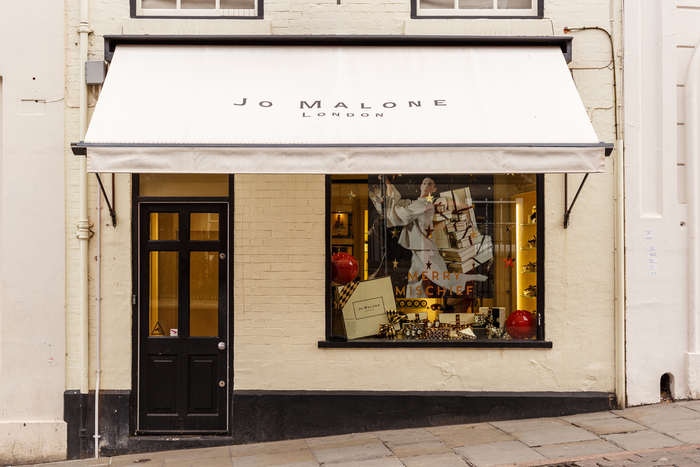Homebase plunged into administration today, appointing Teneo, which immediately sold the DIY retailer’s brand, IP and up to 70 UK stores to The Range and Wilko owner CDS Superstores.
But where did it go wrong for Homebase, and what will happen next? Retail Gazette explores.
Homebase’s fall from grace
Homebase’s demise was kickstarted by what GlobalData senior data analyst Matt Walton terms, the “disastrous ownership” by Australian conglomerate Wesfarmers.
The group bought Homebase in 2016 for £340m to bring their Bunnings hardware store to the UK. It made a swift exit just two years later as it sold the business for £1 to restructuring firm Hilco, having sunk around £1bn into the venture.
“The real root cause of the issues at Homebase lies on the back of its acquisition by Wesfarmers. I think that caused such a big ripple effect on the business that it’s taken a lot of time for it to get itself back on track,” he says.

Bunnings’ botched DIY job on Homebase involved switching its soft furnishings – which was its clear differentiator from market leader B&Q – for the Aussie retailer’s no-nonsense DIY sheds filled with power tools galore.
When Hilco bought the chain it took swift action, closing a third of Homebase’s stores via a CVA as well as two warehouses, and reverting back to its previous home furnishing focus.
The early signs were positive as the retailer returned to profit faster than expected under CEO Damian McGloughlin, a former B&Q exec.
For the year ending 29 December 2019, it delivered £3.2m EBITDA, compared with a £114.5m loss the prior year.
However, Walton says it was “unable to capitalise on the lockdown-induced boom in DIY and gardening in 2020 to 2022,” and failed to return to its previous market position.
“From being the second largest DIY and gardening retailer in 2015, Homebase’s market share had more than halved by 2021 as Hilco struggled to recover from Wesfarmers’ complete overhaul of its offer,” he says.
GlobalData now places Homebase as seventh in the DIY and gardening market, with its share forecast to sit at just 3.6%.

Walton says that Homebase should have benefitted from cash-strapped shoppers doing smaller refreshes of their homes, but says that “poor communication of its offer” has meant it has not capitalised on this more buoyant part of the market.
It lost ground as competition within decorative DIY intensified from both Wickes and B&Q, says Walton. He points out that B&Q’s marketplace launch in 2022 enabled it to offer a wider range of homewares and furniture, stealing shoppers from Homebase.
Thought Provoking Consulting partner Richard Hyman says Homebase lost its relevancy. “Whatever market you’re trading in, when it’s a competitive market with lots of players and lots of choice, you have to develop a point of view.
“You have to try and develop that relevance, and I’m not sure Homebase really has. Not for a long enough period to really gain traction with customers,” he says.
Hilco sought to offload Homebase several times in recent years, but despite reportedly attracting interest from the likes of former Pizza Express owner Hugh Osmond, and more recently The Range, it failed to sell.
Meanwhile, losses started to mount. In its last reported year to January 2023, it swung to a £84m loss from a profit of £30m the year prior. Sales also plummeted from £788m to £701m over the period.
A challenging market
Homebase has of couse not been helped by the challenging market conditions. McGloughlin called it “an incredibly challenging three years for the home and garden improvement market”.
“A decline in consumer confidence and spending following the pandemic has been exacerbated by the impact of persistent high inflation, global supply chain issues and unseasonable weather,” he said.
In its last reported financial year, the DIY retailer said its costs had increased “significantly” including by over £40m in freight, and £10m in energy bills.
Signs emerged that trouble was on the horizon when Homebase offloaded 10 stores to Sainsbury’s in August at the same time it initiated talks with potential investors.
McGloughin said it had “taken many and wide-ranging actions to improve trading performance including restructuring the business and seeking fresh investment”.”These efforts have not been successful,” he said today.
What’s next for Homebase?
Following The Range and Wilko owner CDS Superstores’ pre-pack deal it has vowed to continue trading the Homebase business online.
However, the up to 70 stores it has acquired will re-open as The Range stores, although they will hold a “much broader choice across garden, showroom and DIY categories – retaining the best of the Homebase expertise and heritage”, according to CDS group CEO Alex Simpkin, who promised to “continue to invest in the Homebase brand, with many initiatives in the pipeline”.

CDS has experience in reviving brands. Following its acquisition of Wilko’s IP just over a year ago, it has not only traded the brand online but launched six Wilko stores with its seventh set to open in Uxbridge in west London week.
Simpkin added: “We’re now in a position to roll out a significant number of Wilko format stores, along with our existing The Range store opening programme, with intentions to more than double the store estate size over the next four to five years. Acquiring the Homebase brand enables CDS to access new customers and reach new communities.”
However, Walton says reviving Homebase will be more complex than Wilko.
“I think the challenge for it is twofold. I’m not sure the Homebase brand has the same amount of resonance as the Wilko brand. It’s not seen as what it was before and it’s just lost a lot of ground.
“I also think whereas The Range to Wilko isn’t an enormous step in terms of offer, the more specialised offer at Homebase is a bit more of a leap.”
Elsewhere, administrators are still hopeful to sell some of the 49 Homebase stores not bought by CDS. Currently 2,000 jobs hang in the balance, although administrators have said there will not be any immediate redundancies and employees’ wage and benefits will be paid while they remain in work.
It is understood that there have been many expressions of interest in the remaining stores, with big box retailers like B&M, the discounters, and DIY rivals thought to be running the rule over some outlets.
Homebase may be soon disappear from retail parks, but hopefully some new operators will take their stores and salvage as many jobs as possible.
Click here to sign up to Retail Gazette‘s free daily email newsletter




























